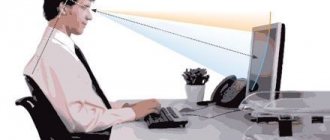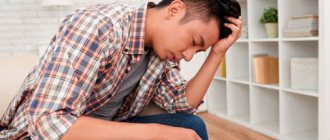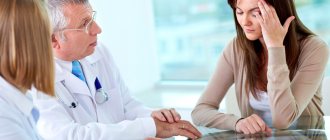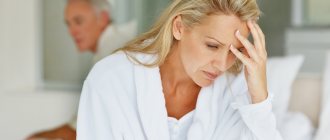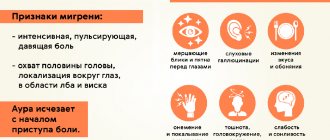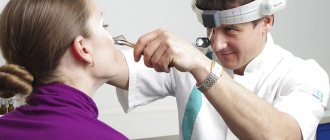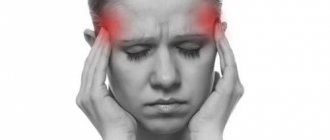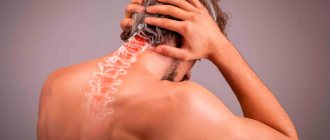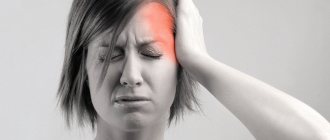Most modern people, and especially residents of megacities, cannot imagine their morning without coffee. Coffee is what advertising signs are full of; the morning smell of freshly brewed coffee attracts you from almost everywhere: from coffee shops, bakeries, shops. It's hard to resist drinking a cup of this aromatic and invigorating drink. But is everything really safe? Many people complain of headaches that arise from drinking coffee and caffeinated drinks. Why do you get a headache after drinking coffee and what can you do about it? We will talk about this later in our article.
Why do you get a headache after drinking coffee?
A post-coffee headache can be triggered by the following situations: either after drinking too much coffee or after partially stopping coffee consumption. In both cases, a person, as a rule, experiences not only pain in the head area, but also a general sluggish state of the body.
Headache after coffee is a common problem. Although caffeine is used in many pain relievers, in some cases, instead of helping, it causes a severe headache or migraine. A headache after coffee can occur both if you drink too much of the drink, and if you sharply and significantly reduce its consumption. Headaches may return within a few weeks after completely eliminating coffee from your diet. – Victoria Netrebko, cardiologist at the regional clinic in Kharkov.
So what is the connection between headaches and drinking espresso, Americano or any other type of coffee drink? The fact is that each human body reacts individually to the stimulation that caffeine has on the nervous system. Most people gain energy and vigor because coffee acts as an energy drink. However, there is another side to the coin: if a person has diseases of the nervous or cardiovascular system, coffee can provoke migraines, lethargy, fatigue and will only worsen your well-being. Along with these unpleasant symptoms, the consequences of drinking coffee can also be:
- Feeling nervous;
- Convulsions;
- Pain in the epigastric region;
- Sleep disorders;
- Irritability;
- Depression;
- Nausea and vomiting;
- Decreased concentration.
If you notice at least one of the listed symptoms, we definitely recommend that you visit a doctor so that a specialist can make a thorough diagnosis, adjust your diet and advise you on drinking coffee individually.
What foods contain caffeine?
If you experience one or more of the listed symptoms, this does not mean that stopping drinking coffee will immediately get rid of this problem. If your body is extremely sensitive to caffeine, the following products should be prohibited for you:
- Tea leaves (any strong green or black tea);
- Cocoa seeds;
- Guarana and any energy drinks;
- Cola nuts.
A specialist at the Polish Institute of Neurobiology, Andrzej Rutkowski, states: “Caffeine consumption should be safe when drinking two cups of coffee. This is the correct and normal dose for a healthy person who does not complain of any diseases. If after drinking one or two cups of coffee you experience unpleasant symptoms, you should definitely visit a doctor and undergo an examination in order to prevent problems in the functioning of the cardiovascular and nervous systems in time.”
What advice can you give to those suffering from a hangover?
The most important prevention of a hangover is not to abuse alcohol, and also to learn to say no to drinking company if you feel that your limit has already been exhausted. Of course, this is difficult to do - you need to have the will and character to resist temptation. But, if you do have too much, be prepared for a hangover and all its negative manifestations.
Read our articles on how to force your husband to stop drinking and start treatment for an alcohol-dependent person.
If you are feeling particularly hard the next morning, call ours - we will arrive as quickly as possible, promptly select an IV, and within an hour or two you will feel relatively normal and will even be able to go to work. Well, if the hangover is particularly severe, we will be able to completely restore your health upon admission to our clinic. The main thing is not to delay - because the sooner therapy begins, the faster and without complications there will be a way out of a hangover.
How to get rid of headaches after coffee?
If you have a headache after drinking coffee, don’t rush to take your pills. There are traditional methods that will help you get rid of headaches after coffee at home. If you can't give up your favorite drink, try to follow these tips:
- Drink plenty of still mineral water;
- Enrich your diet with fruits and vegetables. They contain vitamins and minerals that strengthen the nervous system;
- Replace classic black or green tea with any tea of herbal origin (chamomile, lemon balm, mint, thyme);
- Take care of long and high-quality sleep, which should be at least eight hours;
- Try to get more rest;
- When taking any medications, make sure that they do not contain caffeine.
Caffeine for medicinal purposes
Oddly enough, in addition to harm, caffeine can also bring benefits. Many people consider caffeine not only a stimulant, but also a pain reliever. And this is justified. There are over-the-counter medications on the market that contain a combination of paracetamol and caffeine. Caffeine complements the analgesic and antipyretic effects of the drug due to its anti-inflammatory, antioxidant and immune response activating properties. Therefore, this combination can be used even for colds and flu. According to one drug manufacturer, caffeine increases the pain-relieving effect of paracetamol by 66 percent and speeds up the onset of its work. The drug is also recommended for the treatment of migraines, which it often treats just as well as strong medications prescribed by doctors to treat extremely intense headaches.
According to Andrzej Rutkowski, other similar methods of combating migraines are known, for example, to get rid of aching pain, just drink a cup of coffee with a slice of lemon. Apart from providing the right dose of caffeine, the citrus will also boost your vitamin C levels. Other pain-relieving coffee recipes are known, such as coffee with cardamom and ginger. These coffee drinks are also good for colds because they have a warming effect. However, remember that coffee is not for everyone. Before using such products, be sure to consult your doctor.
What to do if the hangover is very severe?
If while drinking you have significantly exceeded your individual norm and the hangover is moderate to severe, then there is only one way to get rid of a hangover quickly - call a narcologist to your home. An experienced specialist, after examination and express diagnostics, will correctly assess the patient’s condition and prescribe adequate treatment. The fastest and most effective way to relieve a hangover is a dropper based on a saline solution with a composition that restores the water-salt and acid-base balance.
Additionally, the following devices can be connected to the dropper:
- Diuretics to force diuresis and rapid elimination of acetaldehyde.
- B vitamins, ascorbic acid (vitamin C).
- According to indications, sedatives, antihypertensive drugs, hepato- and cardioprotectors are prescribed.
We provide 3 types of drips for alcohol poisoning: standard, intensive and triple. The latter provides protection for the heart, liver, nerve cells and kidneys from the toxic effects of alcohol.
Only a doctor can decide what to do in case of a severe hangover with life-threatening symptoms. Typically, in such cases, treatment for a hangover is indicated only in a hospital, in order to ensure the provision of resuscitation measures as quickly and fully as possible.
Hypertension and caffeine
According to the expert, taking caffeine or other caffeine-like products to people suffering from hypertension can cause irritation and severe headaches. Heart palpitations may also occur. This all happens because there is no universal pressure, and each body reacts to caffeine differently. People suffering from hypertension should be careful not only with coffee, but also with painkillers, which often contain caffeine. This is an important issue, especially for headaches, which are treated with the right dose of coffee.
You can adapt to caffeine and thus become resistant to it. Moreover, drinking five or even six cups of coffee daily, caffeine can cause the opposite reaction to the desired one, that is, cause drowsiness, says Andrzej Rutkowski. Excess of this substance can sometimes make headaches worse. According to the specialist, we are talking about the depletion of certain receptors, which leads to the so-called paradoxical effect.
According to Caffeineinformer.com, a website devoted to the effects of caffeine on the human body, coffee headaches have their own distinctive signature. The soreness begins behind the eyes and moves toward the forehead, and as it progresses, it can cause severe migraines. Such illnesses can occur in people who undergo caffeine detoxification, drink excessive amounts of coffee, or, paradoxically, do not drink their daily dose of caffeine.
Coffee and blood pressure
If you are hypertensive and your blood pressure is fluctuating, you absolutely need to monitor its normal level. Coffee can cause sudden surges in blood pressure, which can lead not only to health problems, but also to death, which is why it is so important to monitor blood pressure readings. Tonometers will help you with this, which you can buy on the website of our online store Orthosalon or in the Medtechnika Orthosalon chain of stores in your city.
There are several types of tonometers:
- Mechanical;
- Semi-automatic;
- Automatic.
With the help of a tonometer, you can always monitor your blood pressure in a timely manner and take measures to normalize it. In addition to the mechanical one, in our Medical Equipment store in Kharkov, Kiev, Dnepr, Odessa, Lvov and other cities of Ukraine, you can also choose and buy an automatic tonometer, which is an innovative means of measuring pressure and has a number of wide and useful functions, such as: measurement heart rate, calculation of the average value of the results, voice guidance, date and time display and many others. We work only with the world's leading brands, so we confidently guarantee you the quality of the products we provide. If you decide to buy a tonometer, it’s time to visit Medtekhnika Orthosalon.
What not to do if you have a hangover?
Let's rephrase the question: what should never be used to treat a hangover? Because all the actions of a person suffering from a hangover are aimed at alleviating the symptoms. At the same time, the set of methods and means can be very diverse. But if some of them really help, while others play the role of a placebo, then others can only do harm. It is precisely these methods that I want to warn against:
- As already mentioned, you should not relieve a hangover with coffee or strong tea. The caffeine contained in them increases the myocardial need for oxygen, and the heart already needs it. And besides, caffeine can increase blood pressure, and this is already dangerous and can result in a stroke.
- You shouldn't fight a hangover in a bathhouse. It seems that all toxic metabolites will be released with sweat. But this is far from true. Excessive sweating will cause even more severe dehydration of the body, which, together with high temperature and high humidity, can be extremely dangerous for the heart and result in a heart attack.
- And I won’t tire of repeating – you can’t get hungover. This is the greatest harm, leading to increased intoxication, alcoholization of the body, and even binge drinking. The latter is especially relevant for the first stage of alcoholism and symbolizes its transition to the second stage.
By the way, call an ambulance immediately if, during a hangover, you suddenly feel something unusual in the form of:
- too pronounced tachycardia, when the heart almost jumps out of the chest;
- interruptions in cardiac activity (arrhythmias);
- sharp throbbing headache;
- pressing pain behind the sternum radiating to the left arm, etc.
These may be symptoms of a stroke or heart attack.

